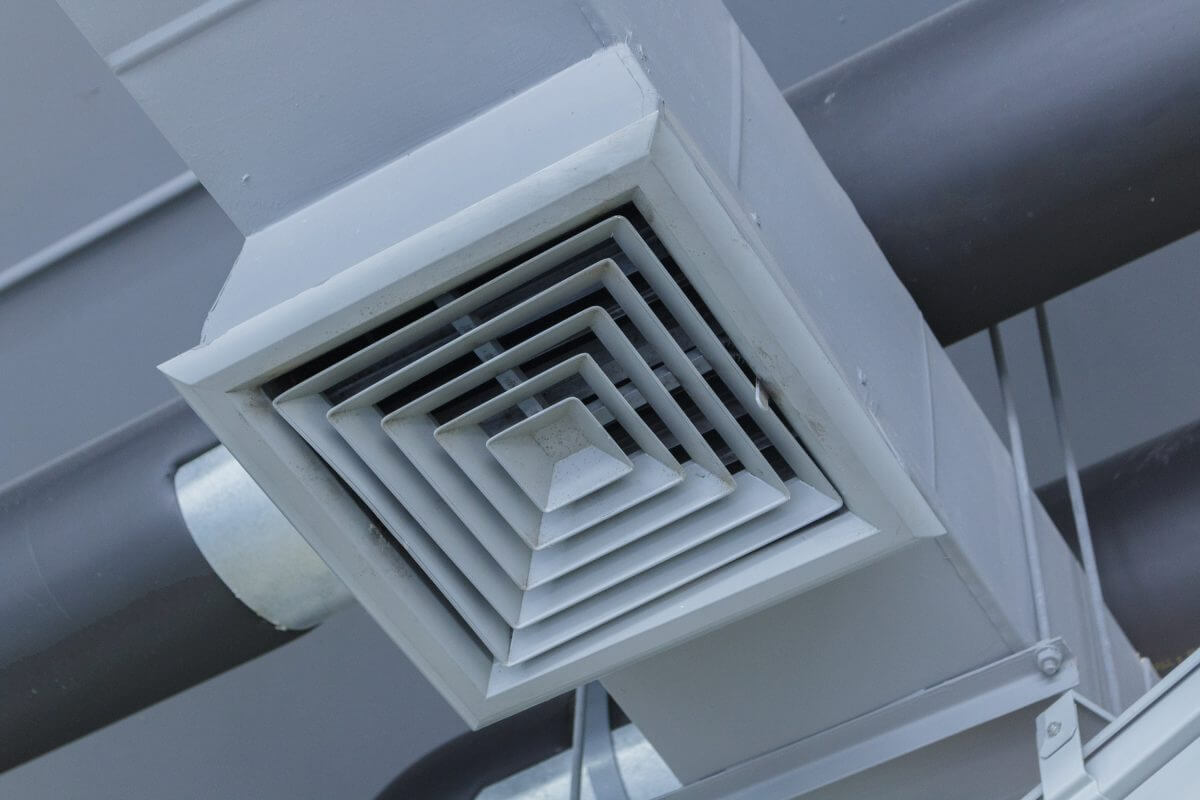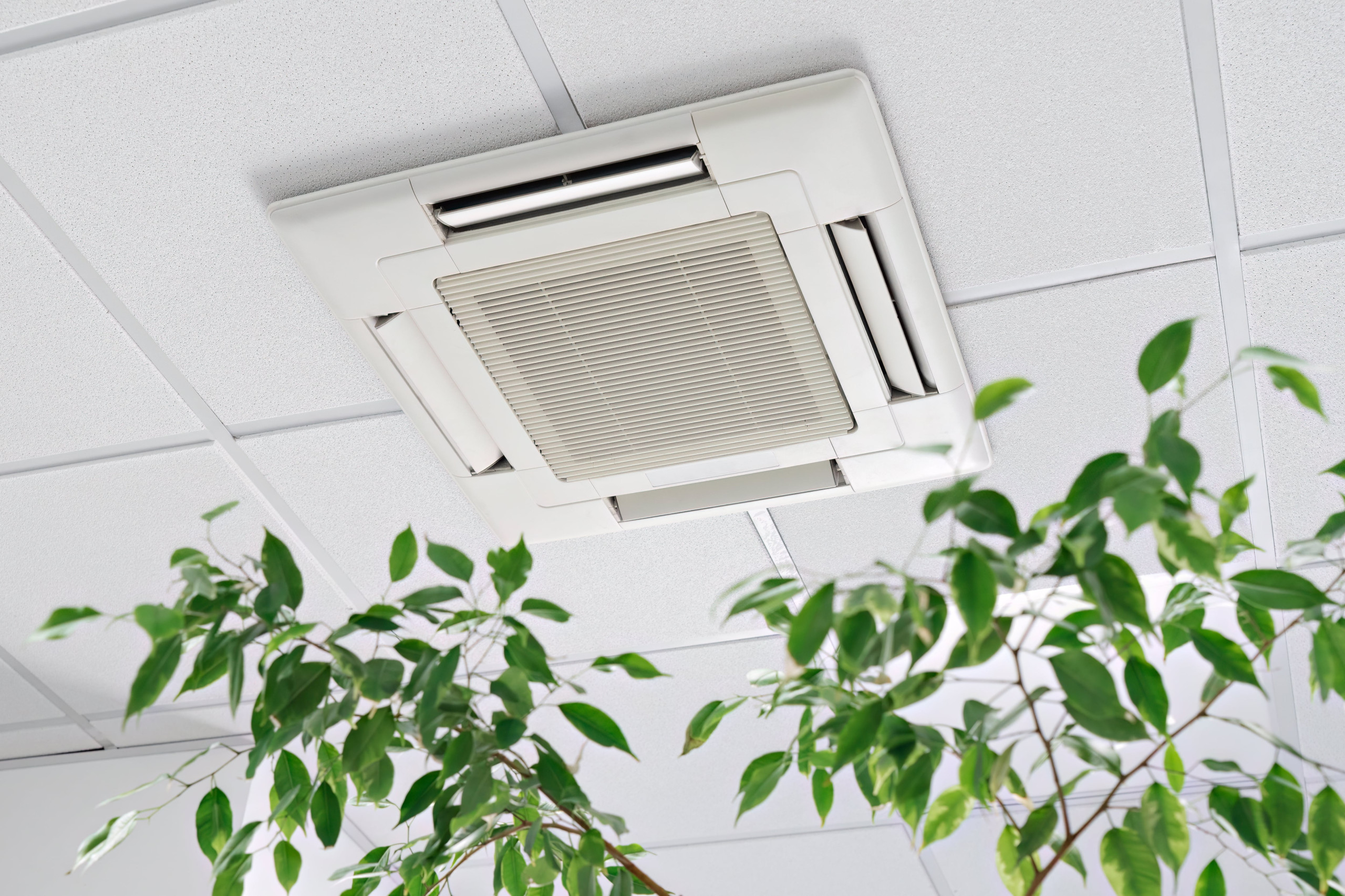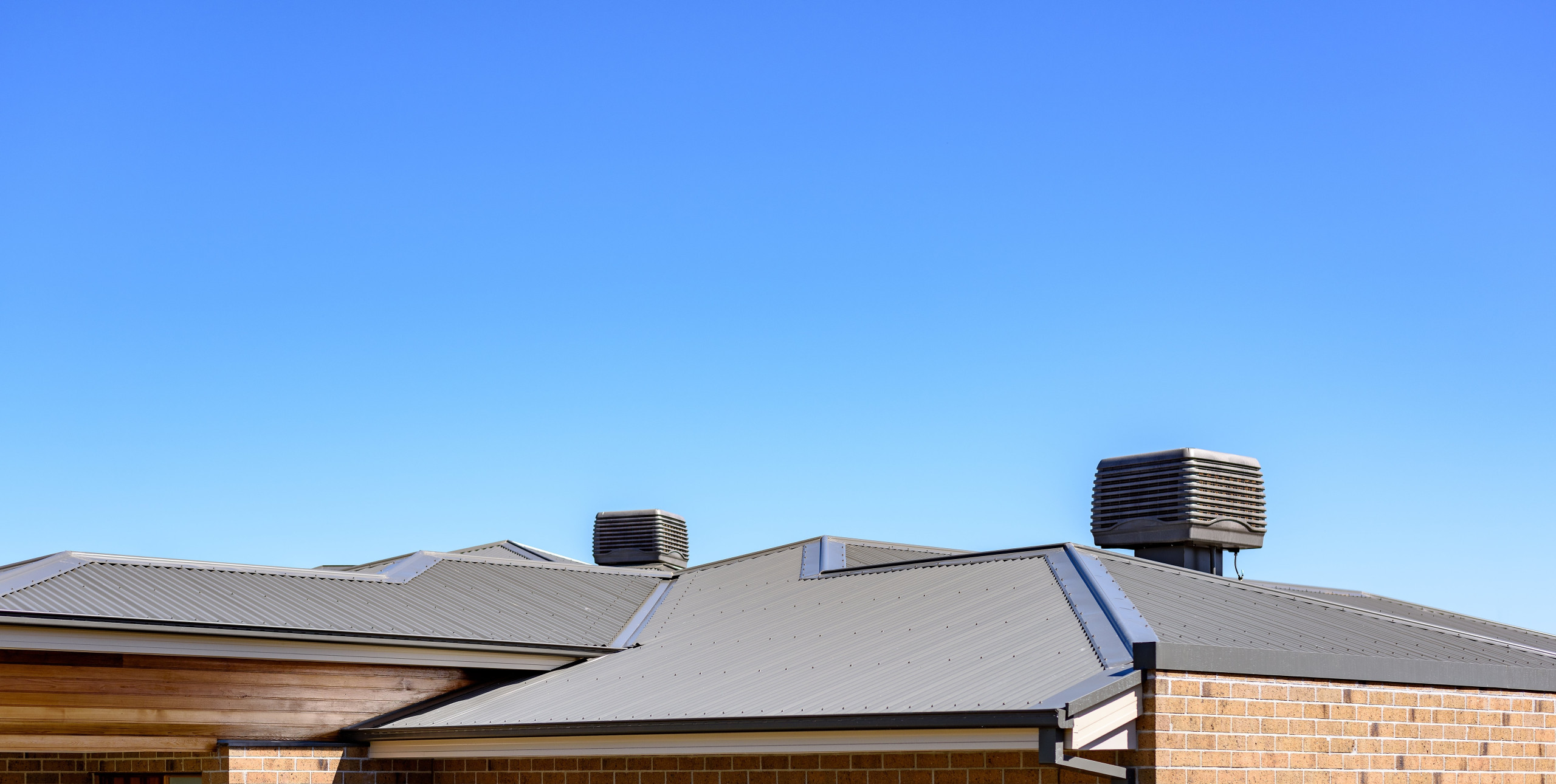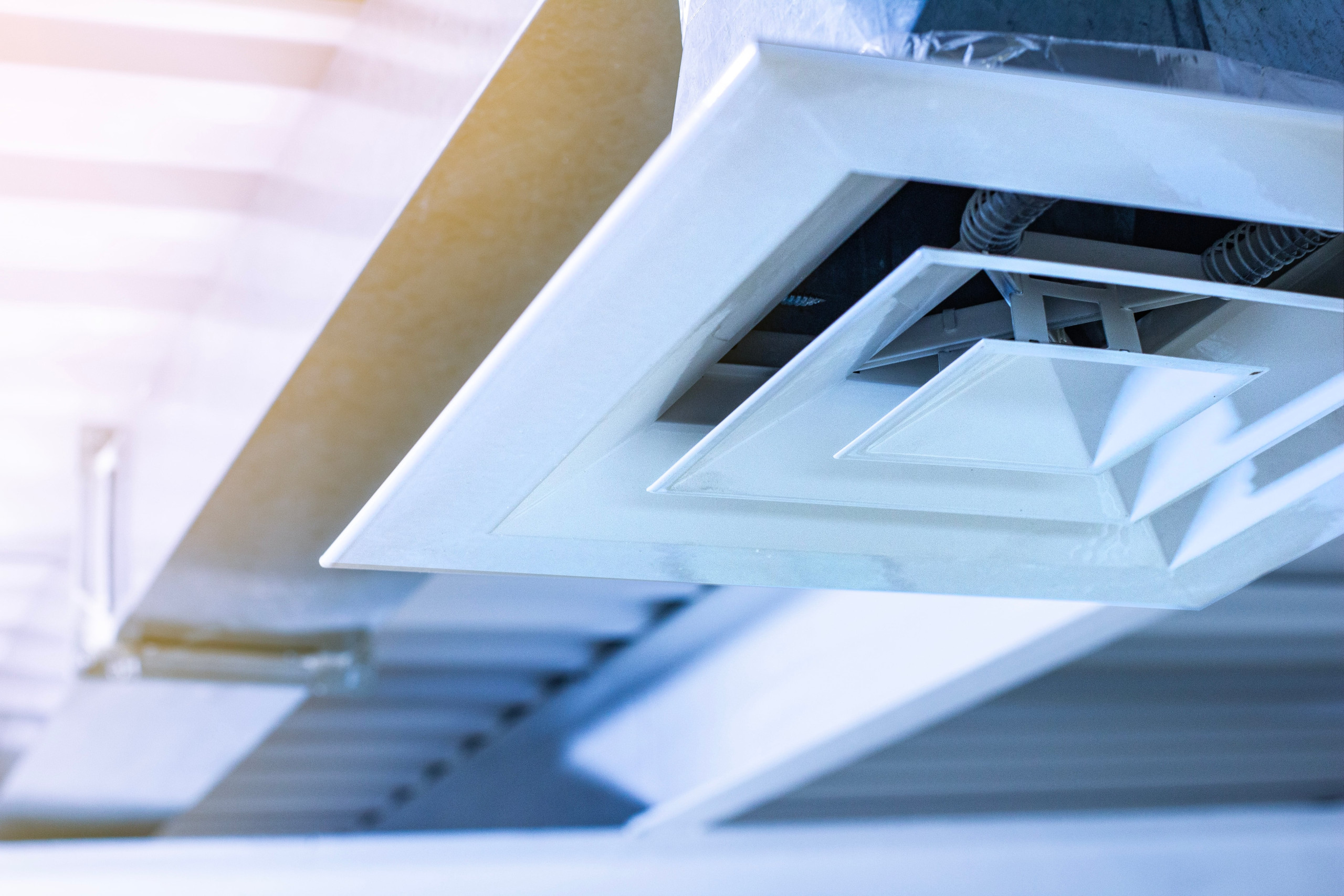Stay Cool and Efficient with Refrigerated Air Conditioning
With the beginning of spring fighting its way through the last of winter’s clutches come the warmer days and months. In addition to the nicer weather, we’re beginning to look into either upgrading our existing air conditioning units that we’ve had or installing one to get through the Australian heat. This can be where ducted refrigerated air conditioning comes in.
Ducted refrigerated air conditioning works by cooling air with a refrigerant, which is then circulated throughout the building via a series of air ducts. This refrigerant absorbs heat from the air, cooling it down and creating a comfortable environment. It also helps to reduce humidity, making them ideal for hot Australian summers.

Understanding Refrigerated
Air Conditioning
What is Ducted Refrigerated Air Conditioning?
Ducted refrigerated air conditioning is a type of cooling system that works by removing the heat from the inside air in a home. By using a special type of refrigerant fluid to absorb the heat and then release it in the outside unit, creating a cooler, more comfortable space inside.
How Does It Work?
Ducted refrigerated air conditioning systems work with the help of two units: an inside unit and one outside. The inside unit has an evaporator coil that helps to absorb the heat from the air. The refrigerant, which is in a gaseous state, passes through the evaporator coil and absorbs the heat. The refrigerant then moves to the outdoor unit, through your home in the ducts, where it is compressed and condensed. The heat is released outside, and the refrigerant returns to its liquid state. The liquid refrigerant then moves back to the indoor unit, where the process starts again.
Parts of a Refrigerated Air Conditioning System
A refrigerated air conditioning system consists of several components,
- Evaporator Coil: This coil is located inside your building and is responsible for absorbing hot air inside, and cooling it down.
- Compressor: The compressor is usually located in the outdoor unit and plays a vital role in the cooling process. It pressurises and heats up the refrigerant gas, preparing it for the heat reverse cycle.
- Condenser Coil: Also outside, this releases the heat absorbed from inside your building into the outdoor air, turning the refrigerant into a liquid again.
- Expansion Valve: This valve is placed between the evaporator and condenser coil and rapidly reduces the coolant’s pressure, causing it to expand and cool down.
- Refrigerant Lines: These pipes or tubes connect the various components, allowing the refrigerant to cycle through the system.
- Thermostat: The thermostat is an indoor device that allows you to set and control the desired temperature. It signals the system to turn on or off based on the temperature you’ve chosen.
- Air Handler: The air handler is part of the indoor unit and circulates the conditioned air throughout your home or building.
- Ductwork: Ducts are used to distribute the cooled air to different rooms or areas within your space.
- Air Filter: The air filter helps remove dust, debris, and pollutants from the air, improving indoor air quality and protecting the system from damage.
- Fan: The fan inside the air handler helps circulate the air over the evaporator coil, ensuring efficient cooling.
The Benefits of Ducted Refrigerated Air Conditioning
Energy Efficiency
Ducted refrigerated air conditioning is known for its energy efficiency. It uses less energy than other types of air conditioning systems, such as ducted air conditioning systems. This is because it only cools the air that is needed, rather than cooling an entire home or building.
Improved Air Quality
Refrigerated air conditioning systems also improve air quality. They filter the air, removing dust, allergens, and other pollutants. This is especially important for people with allergies or respiratory problems.
Consistent Temperature Control
Refrigerated air conditioning systems provide consistent temperature control. They maintain a constant temperature, regardless of the outside temperature. This is important for people who need a stable environment, such as those with medical conditions.
Noise Reduction
Refrigerated air conditioning systems are also known for their noise-reduction capabilities. They are quieter than other types of air conditioning systems, such as portable air conditioners or evaporative cooling systems.
Practical Applications
Residential Use
Refrigerated air conditioning is commonly used in homes. It provides cool air and maintains a comfortable temperature indoors. Ducted refrigerated air conditioning systems are popular in large homes, as they can cool different rooms simultaneously.
Commercial Use

Refrigerated air conditioning is also used in commercial buildings, such as offices, hospitals, and schools. Ducted systems are popular in these settings, as they can cool large areas.
Industrial Use
Refrigerated air conditioning is used in industrial settings, such as factories and warehouses. It helps to maintain a stable temperature, which is important for the production process.
Environmental Impact
and Cost-Effectiveness
Environmental Impact
The refrigerants used in refrigerated air conditioning systems can have a negative impact on the environment. Some refrigerants, such as chlorofluorocarbons (CFCs), can deplete the ozone layer. However, modern refrigerants, such as hydrofluorocarbons (HFCs), have a lower impact on the environment.
Cost-Effectiveness
Refrigerated air conditioning systems can be cost-effective in the long run. Although they may have a higher upfront cost than other types of ducted systems, they use less energy and require less maintenance, which can save money in the long run.
Maintenance and Repair Costs

Refrigerated air conditioning systems require regular maintenance to ensure they operate efficiently. This includes cleaning the filters and coils, checking the refrigerant levels, and inspecting the ducts. Repair costs can vary depending on the issue, but regular maintenance can help prevent costly repairs.
Call In iBreeze
Refrigerated AC systems may cost more upfront, but they’re cost-effective in the long run. Regular maintenance ensures efficiency, while modern refrigerants are eco-friendly. Whether you’re looking to install some refrigerated air conditioners in your home or business, give iBreeze, the air conditioning Mandurah experts a call. As Mandurah’s most trusted air conditioning and solar panel specialists, we can help you from your consultation to maintenance and repairs. So get an air conditioning unit installed today and get your house ready for summer.
For energy efficient, effective heating and cooling solutions all year round, reach out to our team of specialists. We’ll deliver the highest comfort to both your residential and commercial space, no matter the size or scale.
Sunday Closed
Monday 9:00am – 5:00pm
Tuesday 9:00am – 5:00pm
Wednesday 9:00am – 5:00pm
Thursday 9:00am – 5:00pm
Friday 9:00am – 5:00pm
Saturday Closed



